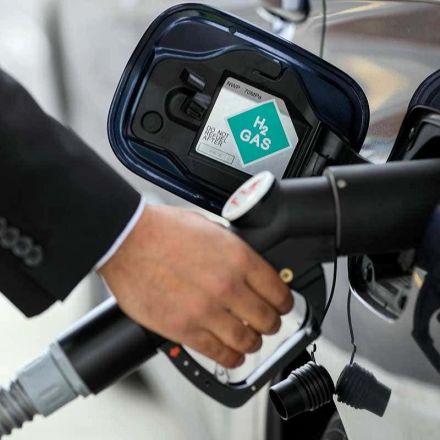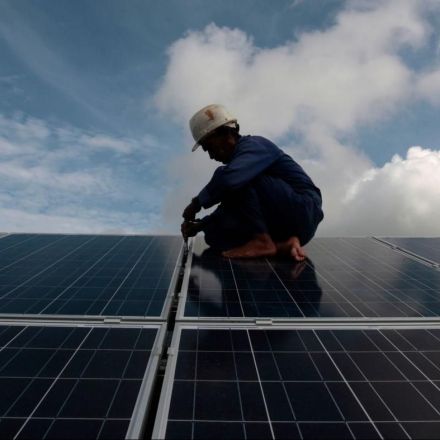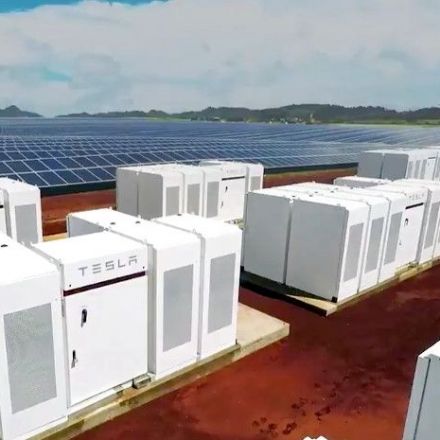

7 years ago
4
If renewable energy can power entire countries, why isn't everyone doing it?
A country getting all its electricity from a combination of wind, solar and hydro sounds like science fiction. It's not.
Continue Reading
Additional Contributions:



























Join the Discussion
They claim they have enough money, but do they really, Governments run on huge deficits, for the most part, they could go into more debt for it and are probably good for it, but is it cost-effective?
Batteries are expensive, but let's not forget that a country like the USA is large, not postage stamp sized like the often quoted Iceland, which coincidentally didn't go Green suddenly but started in 1904. The truth is that it would cost billions for each state to implement, on top of that you would have to get large batteries to store it, my understanding is battery production is in no way Green, batteries also don't last forever and need to be replaced, would there be an offset to the green revolution when they have to continue producing very unclean batteries?
We are again talking billions to install. The article talks about a cost of 3.3 Trillion if we don't do anything about global warming by 2050, we are probably talking the same figures or more to replace the old system.
As does money it would cost to update and install.
These last two quotes go together for me. We are tied to the past, it's already installed, we don't need to spend trillions to replace it and update to new stuff. The goal at this time is to phase out the old and in the new, but this article makes it sound like they should do it immediately, the Stanford study even claimed: "Geothermal energy was available at a reasonable cost for only 13 states." But they don't say what they think is reasonable, or how those states could pay for it, most states operate on a budget deficit as well and can't keep up with crumbling infrastructure, where are they going to find the ability to do this?
The Stanford study also says...
"When you account for the health and climate costs – as well as the rising price of fossil fuels – wind, water and solar are half the cost of conventional systems," Jacobson said. "A conversion of this scale would also create jobs, stabilize fuel prices, reduce pollution-related health problems and eliminate emissions
They never talk the actual costs in either the fossil fuel or supposed lower costs of green, you can't compare because they don't give you numbers you are just supposed to take their studies word for it... The second part of that quote is that green will cost half of the fossil fuels, sure in theory, but who is going to pay for the rollout of the new techno...
Read FullYes. Australia has some of the largest provinces in China.
Meanwhile, economies run on money banks create out of thin air when they issue debt.
That depends on what costs we consider to be what economists call externalities, and what costs we don't bury because they're not our job. For instance, poisoning the atmosphere to the point of another great extinction in Earth's history, that's a real cost, not an externality in our energy economy.
Incidentally, it's always surprising to me how big Australia is.
So what? We spent $100 extra on military spending this year and didn't even have any debate about that.
Or what any country with a national industrial policy and world class research and development know-how would do, develop new kinds of energy storage.
There're more ways to store energy than electric batteries. As the U.S. Navy's shown, if you've got enough extra energy around you can do more than just desalinate, you can synthesize jet fuel. There are more things you can do with excess energy than are dreamt of in your wildest Aziz Ansari bit.
Some folks store energy by using it to haul heavy trains or water uphill. There're a lot of options for energy research around storage.
Agreed, let's get control over these supposed externalities early.
Oh, so roughly two-years-in-Iraq money?
I'm confused, it's like we don't have free market economics on our side? Why do we as Americans have so much trouble understanding that industrial policy isn't the exact same thing as a command economy?
Which'd be fine, if the past had a future. Which it does not.
Yes, we do.
Well, maybe if these states were united in some way, then there might be some way we could collaborate as a people toward needed ends... Nah.
A lot of people that would make this point would also be instinctively opposed to any kind of government subsidy, like the tax deal that makes companies like Solar City pay to put solar on people's roofs in exchange for the long-term tax credits. I don't know if you share that view, but subsidy is a policy tool, a means to an end.
Guess what? Obama didn't kill the coal industry, and Trump's not saving it.
Hasn't work...
Read FullBecause it CAN'T power entire countries
Somebody didn't bother even reading the link.